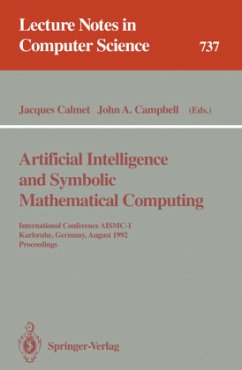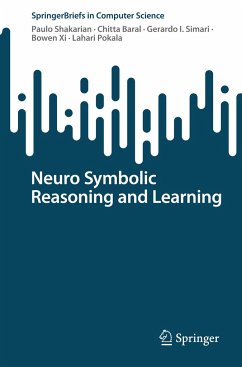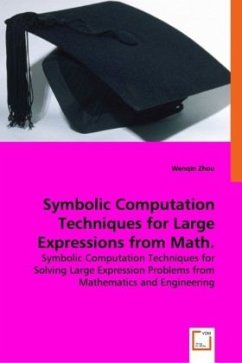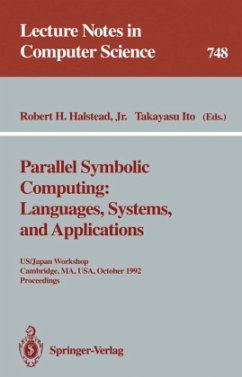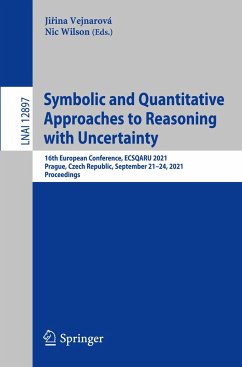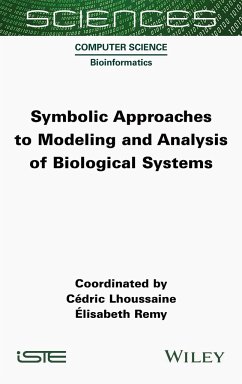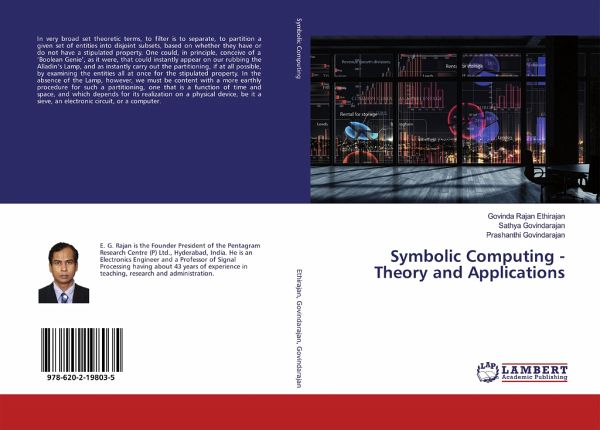
Symbolic Computing - Theory and Applications
Versandkostenfrei!
Versandfertig in 1-2 Wochen
47,99 €
inkl. MwSt.

PAYBACK Punkte
24 °P sammeln!
In very broad set theoretic terms, to filter is to separate, to partition a given set of entities into disjoint subsets, based on whether they have or do not have a stipulated property. One could, in principle, conceive of a 'Boolean Genie', as it were, that could instantly appear on our rubbing the Alladin's Lamp, and as instantly carry out the partitioning, if at all possible, by examining the entities all at once for the stipulated property. In the absence of the Lamp, however, we must be content with a more earthly procedure for such a partitioning, one that is a function of time and space...
In very broad set theoretic terms, to filter is to separate, to partition a given set of entities into disjoint subsets, based on whether they have or do not have a stipulated property. One could, in principle, conceive of a 'Boolean Genie', as it were, that could instantly appear on our rubbing the Alladin's Lamp, and as instantly carry out the partitioning, if at all possible, by examining the entities all at once for the stipulated property. In the absence of the Lamp, however, we must be content with a more earthly procedure for such a partitioning, one that is a function of time and space, and which depends for its realization on a physical device, be it a sieve, an electronic circuit, or a computer.



